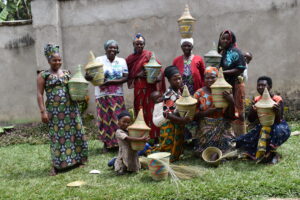Localizing research: Conceptualization and operationalization
 Generally, many of the MHPSS interventions in Sub-Saharan African countries have been based on ‘modes of thinking’ which originated in western countries. Available medical personnel, including psychologists and psychiatrists, are trained in western psychology and medicine and therefore their orientations remain often western-based. Though the World Health Organisation (WHO) called for increased attention to traditional healing practices when it comes to treatment of mental health disorders, the reality in these countries shows that in many interventions people are requested to deliver western-based treatments, instead of using their unique skills and knowledge regarding, for instance, local idioms of distress. A risk of applying MHPSS tools which are developed in parts of the world other than the area where an intervention is implemented, is that it could impose a vision that does not fit the local realities and culture. The latter could lead to further stigmatization of mental health problems.
Generally, many of the MHPSS interventions in Sub-Saharan African countries have been based on ‘modes of thinking’ which originated in western countries. Available medical personnel, including psychologists and psychiatrists, are trained in western psychology and medicine and therefore their orientations remain often western-based. Though the World Health Organisation (WHO) called for increased attention to traditional healing practices when it comes to treatment of mental health disorders, the reality in these countries shows that in many interventions people are requested to deliver western-based treatments, instead of using their unique skills and knowledge regarding, for instance, local idioms of distress. A risk of applying MHPSS tools which are developed in parts of the world other than the area where an intervention is implemented, is that it could impose a vision that does not fit the local realities and culture. The latter could lead to further stigmatization of mental health problems.
Apart from interventions, a similar trend applies to evidence-based working in Sub-Saharan Africa, including the Great Lakes Region. In the development sector it is widely accepted that evidence contributes to improving development of policies and programs. Therefore, many organisations put emphasis on research and conducting evaluation studies, including randomized control trials. However, often international actors maintain control over the research, whereby interventions are modified to fit researchers’ interest and/or local organizations and communities become merely implementers of what is assigned to them, rather than (co-)designers of the research. This has the potential to undermine local knowledge production and dissemination, which is crucial for effectively addressing issues related to MHPSS and PB. So far localizing research designs to support integrated MHPSS/PB interventions and their effectiveness have not yet been widely implemented. In this perspective, strategies used by CBS Rwanda and partners to localize research approaches by using bottom-up community indicators will be presented at this conference.
